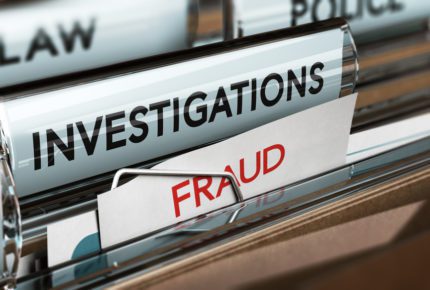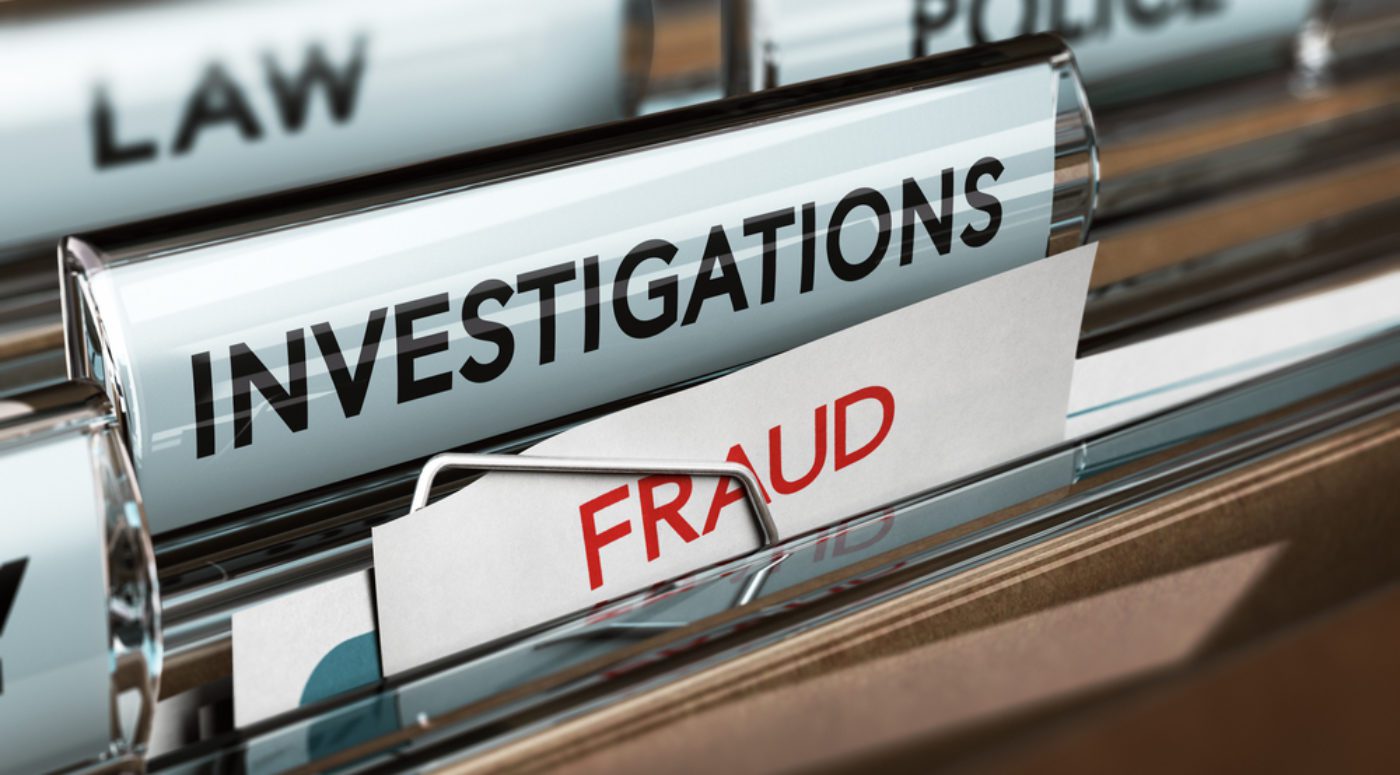

Standing accused of fraud is an extremely stressful experience, and one of the first things you need to do is secure appropriate legal representation so that you can handle the case and any potential fallout from that case in your personal or professional life. Finding the best fraud solicitors in London, however, can seem like an overwhelming and daunting task.
There are a number of factors that you need to consider, and what is right for one person might not be right for another. The good news, though, is that there are a number of people and resources out there to help you, and once you get the process underway, things are much easier than they first seem. This article will guide you through some of the questions that you need to ask yourself and give you further information on how to find the best fraud solicitor in London.
What type of fraud am I involved in?
It may sound quite obvious, but the first thing you need to work out when you are involved in a fraud case is what exactly you stand accused of. Knowing the exact type of fraud allegation you face is critical in finding the best fraud solicitors in London because you need to be able to filter out those that do not have the right form of fraud expertise. Fraud is an incredibly vast and complex area of the law, and so it pays dividends to narrow your search earlier on and make sure that you find a fraud solicitor with the appropriate expertise to defend your case.
Some of the main types of fraud include:
- Bank fraud may occur where, for example, an individual or a group poses as a real bank in order to trick people into paying money into that bank, or otherwise obtains money from the real bank illegitimately.
- Benefit fraud is incredibly common and may occur where someone obtains benefits to which they ordinarily are not entitled through some form of misrepresentation or deception (for example, lying on application forms and saying you do not have a job, when in actual fact you work a cash-in-hand job four days a week).
- Charity fraud occurs where someone poses as a member of a charity (such as a street fundraiser) to obtain money, or otherwise uses charitable credentials or endeavours to obtain cash or tax benefits unlawfully.
- Counterfeiting (often linked to identify fraud) occurs where someone fakes documents, usually identity documents like a passport, in order to impersonate someone else for financial or other gain, or to divert funds to someone else.
- Credit card fraud is another common offence that occurs where someone deceives a credit card company in order to obtain credit or uses someone else’s credit card without their permission.
- False accounting occurs where sums of money in a company or other official set of accounts are hidden or otherwise modified to seem more or less than the actual amount, which may result in financial gains for the accounting entity (for example, lying about income to avoid paying tax, which may also count as tax evasion)
- Forgery occurs where money or cheques are falsified and used to obtain a benefit, such as goods paid for by fake cash notes.
- Fraud by false representation occurs where someone lies about something – their identity, a particular number, their status, etc. – in order to mislead someone, which results in a financial gain.
- Money laundering occurs where illegally obtained money is ‘cleaned’ by being put through another business or otherwise made to seem like it was legitimately acquired to hide the proceeds of crime.
- Mortgage fraud occurs where individuals lie to mortgage providers in order to avoid making payments or to secure better rates than ordinarily would be available to them.
- Online fraud occurs where individuals or groups use the Internet to defraud people, either through false products or services, impersonating a legitimate institution (such as an employer or a bank), or otherwise deceives victims for financial gain.
- Tax fraud occurs where there is intentional and dishonest misrepresentation or withholding of information in order to deceive tax authorities or otherwise avoid paying taxes, in part or altogether.
- VAT fraud occurs where individuals or groups use complex accounting or other methods to deny the government VAT payments that ordinarily would be due to it.
What type of lawyer do I need?
Once you have ascertained which kind of fraud offence you are facing, you can begin to narrow your search for a solicitor by looking for those with proven experience in the field.
For example, those who come to Stuart Miller Solicitors for advice on their fraud case often want to know about the firm’s track record in successfully defending fraud cases. In this instance, we show them examples like:
- A supermarket worker who was accused of gift card fraud while working at the cash register was cleared by the team at Stuart Miller Solicitors after the team was able to prove it was not the accused who had been committing the fraud within the business.
- A man who was loaned £50,000 to purchase a council house was cleared of money laundering accusations (conspiring to transfer criminal property) after the team at Stuart Miller Solicitors proved there was no criminality in his actions in borrowing the money from his friend.
- A man who was embroiled in a £12 million bank fraud was cleared by the fraud experts at Stuart Miller Solicitors after the team was able to prove that a bank account linked to the crime was used by the defendant’s friend, not by the defendant himself.
Once you have assured yourself that you are dealing with experienced fraud solicitors with a track record of successfully defending fraud cases, you need to consider the following:
- Has the firm received positive testimonials from previous clients? Make sure to check their website and other third-party review websites to get further information on previous clients’ experiences. Stuart Miller Solicitors, for example, has an ‘Excellent’ rating on Trustpilot.
- Has the firm been verified by the Solicitors Regulation Authority? You can check with the SRA directly or look for a verification badge on the firm’s website. Stuart Miller Solicitors’ verification is available for public viewing here.
- Does the firm ‘feel’ like the right fit for you? Only you can answer this question, but as you are perusing the firm’s website and pouring over third-party information, are you getting a good first impression? This is an important – yet often overlooked – factor. You want to work with a firm that can serve as a true partner in your defence. This means working with a team that you feel comfortable with, that you can trust, and that you can rely upon to act 100% in your best interests at all times.
- Is the firm willing to give you a free consultation? If the firm isn’t willing to listen to your situation for half an hour or so to see if they can really help you, it is likely they won’t go the extra mile for you when you engage them either. Make sure the firm you choose offers a no obligation consultation before you sign contracts to engage them.
What can I expect to pay a fraud solicitor in London?
Getting information on how much a fraud solicitor costs in London can be tough, as many firms do not release their fees prior to having a detailed consultation with the individual. That said, you can get a good idea of the rough cost of a fraud solicitor in London by viewing the government guidelines on solicitor costs.
For fraud solicitors in London, you can expect to pay:
- Between £267-£409 per hour for solicitors with over eight years’ experience
- Between £229-£296 per hour for solicitors with over four years’ experience
- Between £121-£138 per hour for trainee solicitors and paralegals
In London, average solicitor fees are to an extent determined by the area the individual is working in.
- Grade 1 solicitors in the City of London are based in postcodes EC1-EC4, and tend to be the most expensive
- Grade 2 solicitors in Central London are based in postcodes W1, WC1, WC2, and SW1, and tend to be ‘in the middle’ of the price range
- Grade 3 solicitors in other parts of London are based in all other London postcodes, and tend to be the least expensive
If a solicitor is seeking to charge you significantly more or less than these figures, you should do some additional due diligence to determine why their rates are so. Avoid cheap solicitors or ‘too-good-to-be-true’ deals as their ineptitude and lack of experience will, ultimately, make it more expensive for you to remedy your situation in the long-run.
Engaging Stuart Miller Solicitors as your fraud solicitors in London
If you or someone you care about is involved in a fraud case, you need to get the best fraud solicitors in London on your side as quickly as possible. With thousands of satisfied clients and countless examples of successful fraud cases defended, Stuart Miller Solicitors certainly does stand among the very best fraud solicitors in London. To find out more about how we can help you, please get in touch with our team today to arrange your free no-obligation consultation to talk through your options.
OUR COMMITMENTS TO YOU:
-
Responsive
A legal expert will consult you within 24 hours of making an enquiry.
-
Empathetic
We will always treat you with trust, understanding and respect.
-
Specialised
Your case will be handled by an expert who specialises in your type of offence.
-
Proactive
We will take early action to end proceedings as soon as it is practically and legally possible to do so.
-
Engaged
You will be kept updated on your case at all times. We will provide a named contact available to answer your questions.
-
Caring
We understand this is a difficult and stressful time for you and your family. Our team will support you every step of the way.
-
Tenacious
We will never give up on your case. We fight tirelessly to get you the best possible outcome.
